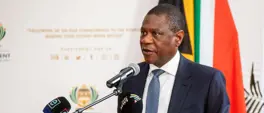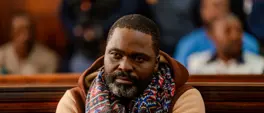MALAIKA MAHLATSI: Why I no longer support Black women leaders unconditionally
Malaika Mahlatsi
13 December 2024 | 6:11Black women leaders who are victims of racism in the workplace are just as capable of being perpetrators of abuse – usually directed at other women, writes Malaika Mahlatsi.
A week ago, South African coal miner, Exxaro Resources, placed its chief executive officer (CEO), Dr Nombasa Tsengwa, on precautionary suspension.
Tsengwa is the first Black woman to hold the position in the company. In announcing her suspension to the Johannesburg Stock Exchange (JSE), Exxaro stated that the decision is pending the outcome of an independent probe into allegations related to workplace misconduct and governance practice. The law firm, ENS, has been appointed to conduct the independent investigation.
Tsengwa’s suspension came just over a week after the publication of an article titled “Exxaro’s bigwig exodus” published by the Business Times, in which insiders made allegations about her harsh management style.
The article stated that since her appointment two years ago, nine senior executives had either resigned in frustration, been fired or placed on suspension. Anonymous sources cited in the article alleged that a culture of fear Tsengwa created within the company was the reason behind the departure of the top executives.
Most recently, Exxaro’s head of coal, Kgabi Masia, was served with a suspension letter while on a work trip in Switzerland.
The article also cites other anonymous sources who provide an alternative narrative, arguing that Tsengwa is being targeted because she has been working to clean up corruption within the company, specifically in relation to the transportation of Exxaro coal. The said source claims the misconduct charge on which she was suspended is flimsy.
Tsengwa has been an employee of Exxaro for over two decades, having joined the company in 2003. Her previous appointment before being promoted to CEO was managing director of minerals. Prior to this, she was the executive head of coal operations – a position that she held for just over five years.
At the turn of the millennium, she was the Deputy Director General in the national Department of Environmental Affairs, responsible for shaping South Africa’s national policy on biodiversity conservation, waste and pollution management, climate change and the overall management of environmental impacts. With a PhD in Agronomy and Crop Science from the University of Maryland in the United States, there is no question that she is suitably qualified for her position.
Tsengwa’s suspension is being viewed by some as part of the ongoing assault on Black executives – women in particular. Over the years, both in South Africa and globally, Black women have been on the receiving end of racist and sexist attacks by conservative and right-wing elements who are resistant to diversity, equity and inclusion initiatives.
Nowhere has this been as pronounced as in the racist and vicious attacks on Black academics, particularly women. The ousting of Harvard University’s Professor Claudine Gay in January this year sent shockwaves across the world. Gay was the first Black president in the Ivy League’s history and served less than 200 days as its president.
The flimsy reasons provided for her removal, for “plagiarising” some parts of her doctoral thesis that she had submitted and been awarded for in 1998, led to some questions about the personal scholarly integrity – many of them baseless. Her removal came at the height of similar actions against Black women academics in the USA and beyond.
Just a few weeks later, the Vice Chancellor of the University of Cape Town (UCT), Professor Mamokgethi Phakeng, departed from the top-ranked university after being at the centre of a leadership crisis that had engulfed the institution for months. This specific issue brings me to my argument about why I have ceased to give unconditional support to Black women leaders who are removed on the ground of poor governance practices.
I recognise and wholeheartedly believe that the world is extremely tough for Black women who lead big institutions – be it private companies, universities or government departments.
Being a director in the Gauteng Provincial Government, I know too well the challenges that women face in navigating patriarchal spaces that have not adequately transformed. Gender mainstreaming, which transcends gender representation, is yet to be realised. And I have no doubt that the situation is far worse for Black women in the private sector and some higher learning institutions as they are dealing with not just patriarchy, but deeply entrenched racism as well.
But multiple things can be true at the same time, and the truth is that Black women leaders who are victims of racism in the workplace are just as capable of being perpetrators of abuse – usually directed at other women.
While we may never know the full details surrounding the ousting of Phakeng from UCT, particularly since her settlement with the university involves a non-disclosure agreement (NDA), the allegations contained in the independent panel report into the governance crisis at the university are damning.
The report, released by retired Supreme Court of Appeal president, Judge Lex Mpati and his panel, stated that Phakeng bullied and intimidated colleagues “using race and racial difference as a weapon in her interactions with almost everyone at UCT”.
The report also details how she invisibilised other women, particularly Coloured women, whom she did not deem as Black. It further contends that she would often complain about how there were too many Coloureds in executive positions, cementing the Verwoerdian tactic of divide and conquer among a colonised people who have known too well the horrors of apartheid and who, as a result, continue to suffer from its effects.
There are indications that the former deputy vice chancellor for transformation and student affairs, Professor Loretta Feris, left UCT because of Phakeng’s bullying. In the report, an incident is detailed where Feris was left a meeting in tears following a verbal assault that was witnessed by several colleagues.
Feris, as anyone in the academic space knows, is one of the most progressive scholars in our country. Her commitment to transformation, and her self-identification as a Black woman, makes her alleged victimisation particularly distressing.
Equally distressing is the experience of other Black women such as the director of the International Academic Programmes office, Dr Beata Mtyingizana, who told the panel how Phakeng had humiliated her to the point of tears in front of colleagues.
At the height of the storm around Phakeng, I had several discussions with colleagues who know her, and the common thread in their assessment of her is that she is an incorrigible bully who uses race to escape accountability for her actions.
A close friend of mine from the University of South Africa, celebrating the ousting of Phakeng from UCT, recounted incidents where she had personally felt bullied and shamed by Phakeng. I have no reason to doubt her account, in part because it mirrors the accounts contained in the panel report and experiences that individuals have shared about their interactions with Phakeng.
I believe that Black women leaders must be protected, but this should never happen at the expense of other women who suffer in their hands. The fact that women like Mtyingizana ended having health problems, allegedly because of bullying by Phakeng, demonstrates how Black women leaders can be harmful to other women.
Thus, in protecting and defending such women, we run the risk of invalidating and re-victimising those they have harmed. This is why I no longer support Black women leaders unconditionally.
Until evidence demonstrates that they were victims who did not become perpetrators too, I reserve my unconditional support.
Malaika Mahlatsi is a geographer and researcher at the Institute for Pan African Thought and Conversation. She is a PhD in Geography candidate at the University of Bayreuth in Germany.














